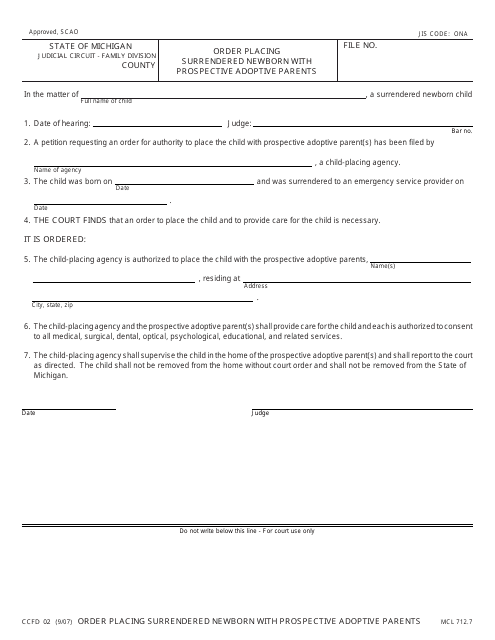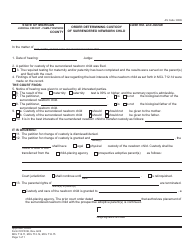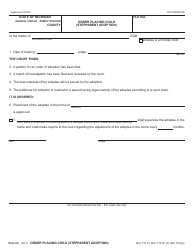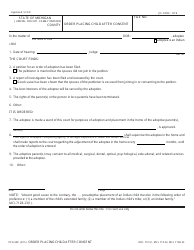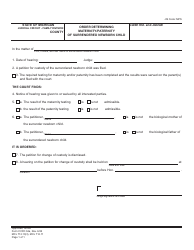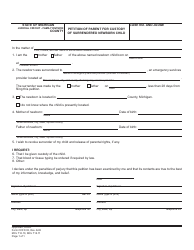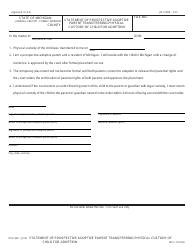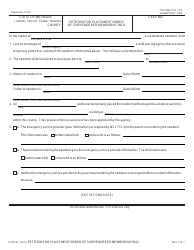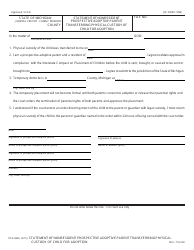Form CCFD02 Order to Placing Surrendered Newborn With Prospective Adoptive Parents - Michigan
What Is Form CCFD02?
This is a legal form that was released by the Michigan Circuit Court - a government authority operating within Michigan. As of today, no separate filing guidelines for the form are provided by the issuing department.
FAQ
Q: What is a CCFD02 Order?
A: A CCFD02 Order is an order issued by the court to place a surrendered newborn with prospective adoptive parents in Michigan.
Q: What is the purpose of a CCFD02 Order?
A: The purpose of a CCFD02 Order is to legally give custody of a surrendered newborn to prospective adoptive parents.
Q: Who issues a CCFD02 Order?
A: A CCFD02 Order is issued by the court in Michigan.
Q: What does CCFD02 stand for?
A: CCFD02 stands for Central Adoption Resource Exchange's Consent to Placement and Application for Court Order.
Q: What happens after a CCFD02 Order is issued?
A: After a CCFD02 Order is issued, the surrendered newborn can be placed with the prospective adoptive parents for care and adoption process to proceed.
Q: Can anyone apply for a CCFD02 Order?
A: No, only prospective adoptive parents who have been deemed eligible by the court can apply for a CCFD02 Order.
Q: What is the role of the court in issuing a CCFD02 Order?
A: The court reviews the eligibility of the prospective adoptive parents and issues a CCFD02 Order to grant them custody of the surrendered newborn.
Q: Is a CCFD02 Order specific to Michigan?
A: Yes, a CCFD02 Order is specific to Michigan and follows the state's adoption laws and procedures.
Q: Can a surrendered newborn be placed with prospective adoptive parents without a CCFD02 Order?
A: No, a surrendered newborn cannot be placed with prospective adoptive parents without a CCFD02 Order issued by the court.
Q: Are there any requirements for prospective adoptive parents to obtain a CCFD02 Order?
A: Yes, prospective adoptive parents must meet the eligibility criteria set by the court to obtain a CCFD02 Order.
Form Details:
- Released on September 1, 2007;
- The latest edition provided by the Michigan Circuit Court;
- Easy to use and ready to print;
- Quick to customize;
- Compatible with most PDF-viewing applications;
- Fill out the form in our online filing application.
Download a fillable version of Form CCFD02 by clicking the link below or browse more documents and templates provided by the Michigan Circuit Court.
